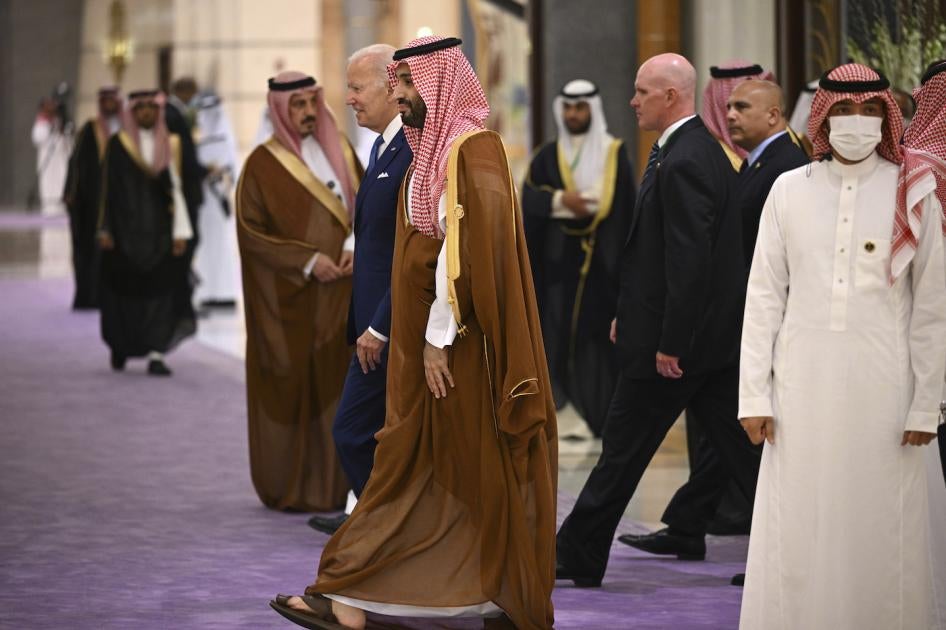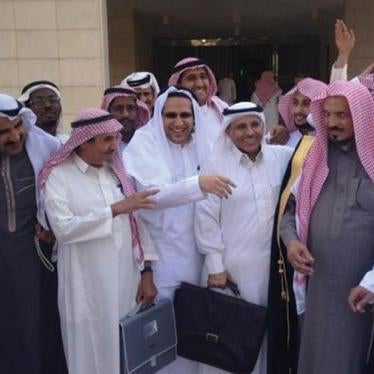Following Saudi Arabia’s decision to cut oil production in October, United States President Joe Biden announced there would be consequences for the Saudi government and a need to reevaluate the US-Saudi relationship. But three months later, that relationship seems unchanged.
Biden’s unwillingness to genuinely reassess the relationship applies to US human rights policy toward Saudi Arabia as well. In December, Biden opposed a resolution introduced by Senator Bernie Sanders to ban US logistical support for airstrikes by the Saudi-led coalition in Yemen, many of which have resulted in apparent war crimes.
On the campaign trail, Biden had vowed to pursue accountability for the murder of journalist and US resident Jamal Khashoggi. Despite promises to make Saudi Arabia a “pariah,” in September 2021 he chose not to sanction Saudi Crown Prince Mohammed bin Salman and in July 2022 he traveled to Jeddah to meet with the crown prince, who, according to US intelligence, was responsible for approving Khashoggi’s murder. Since that disastrous visit, Human Rights Watch has documented a notable uptick in repression, including decades-long prison sentences for citizens sharing opinions on social media.
Last September, Biden repeated his promise that “human rights will be at the center of [US] foreign policy.” That has not been the case when it comes to Saudi Arabia. A reevaluation of US interests in Saudi Arabia should include action against the government’s escalating repression and complete suppression of public criticism.
Even with Saudi Arabia cutting – rather than increasing – oil production, Biden's decision not to follow through with a re-think about the US-Saudi relationship reveals the US government’s perceived dependence on Saudi Arabia. This has the effect of weakening Biden’s leverage on human rights. But it’s more urgent than ever that the administration take a strong stand on human rights in Saudi Arabia.
What would a more human rights-focused foreign policy look like in the Saudi case? The US currently sells more military equipment to Saudi Arabia than to any other country. Instead of turning a blind eye to Saudi’s abuses against its own population, as well as alleged war crimes it committed in Yemen, the US should halt those sales until there are clear human rights improvements. Doing so would put Biden’s broader foreign policy toward Saudi back on credible footing.









